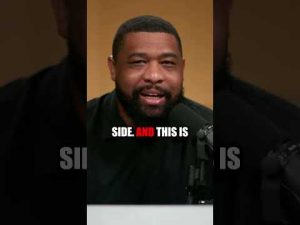In a recent episode of a conservative news show, the topic of PTSD and media reactions to political events took center stage. The discussion was sparked by Capitol Hill correspondent Scott MacFarlane, who claimed that he experienced post-traumatic stress disorder within 48 hours of an alleged assassination attempt on former President Donald Trump in Butler, Pennsylvania. Remarkably, MacFarlane had not sustained any actual injuries but felt distressed by the reaction of the crowd, believing they would have turned against him if President Trump had been harmed.
This unexpected twist on the narrative raised eyebrows among viewers. Many felt that MacFarlane’s reaction was less about genuine trauma and more about his perception of danger in a frequently hostile media landscape. As his fellow commentators took turns dissecting this unusual claim, it became evident that they shared a common sentiment: were journalists really the ones to be pitied in a situation that threatened the life of a former president?
The conversation quickly shifted from MacFarlane to the broader context, where the media’s portrayal of crowds—particularly those at Trump rallies—was called into question. Viewers were reminded that Trump rallies have become a battleground of opinions, where strong emotions often collide. Yet, despite the edgy atmosphere, many commentators were quick to note that no journalist has ever been seriously harmed at these events. This raises a critical question: why does MacFarlane consider himself a victim when those on the front lines—like veterans or first responders—face real peril on a daily basis?
One commentator drew attention to the family of Cory Comparator, a brave firefighter who had tragically lost his life while protecting his loved ones. This loss was contrasted sharply with what some saw as an exaggerated claim of PTSD over an imagined threat. They highlighted the absurdity of the situation, pointing out that while actual trauma does exist in society, it often gets overshadowed by less serious claims that can diminish the experiences of those who have genuinely suffered.
The panelists expressed a mixture of disbelief and frustration, suggesting that the emotional overreactions from some media figures only serve to further alienate the public from the press. Instead of fostering understanding, these claims risk trivializing the experiences of those who have fought through real-life trauma. As they pondered the implications of MacFarlane’s comments, they couldn’t help but wonder how society might view legitimate distress in the face of everything from war to crime in light of such narratives.
In a world where the lines between fact and fiction often blur, it’s crucial to assess not just the validity of one’s experiences but also the context that surrounds them. As the echoes of this discussion linger, it seems the question of who really qualifies as a victim will continue to spark debate. The media landscape may constantly evolve, but one thing is clear: the importance of understanding true trauma should never be lost in the noise of sensationalized claims.







